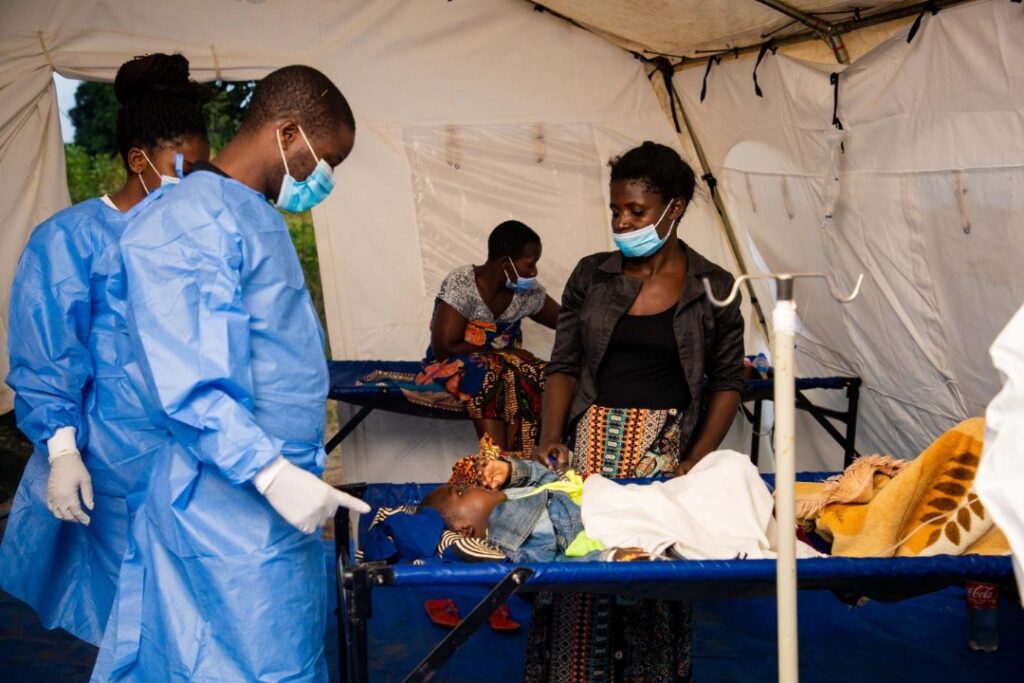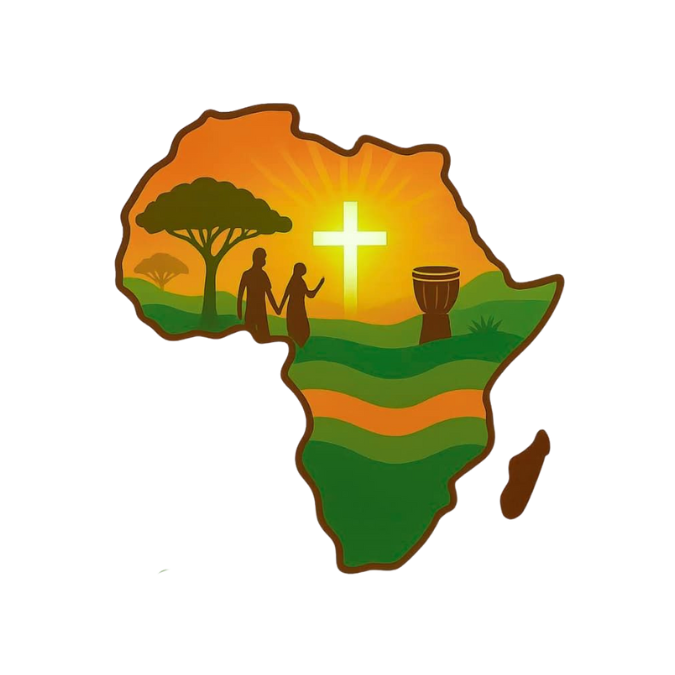
The African Centre for Disease Control and Prevention (Africa CDC) recently reported that the continent is experiencing its worst cholera outbreak in 25 years, with about 300,000 suspected cases and 7,000 deaths—a more than 30 percent increase compared to the previous year. Much of this surge has been linked to fragile water and sanitation infrastructure, especially in conflict-affected countries such as Angola and Burundi, where access to safe water is severely limited. The result is a deepening sanitation crisis. And because cholera demands immediate response—safe water, sanitation, rapid logistics—the outbreak is exposing the weaknesses of already strained health systems.
Health inequity in Africa today is the result of global injustice and the failure of African governments to prioritize One Health, a framework adopted globally to promote access to affordable healthcare services, thereby promoting the health of humans, the planet, and animals. This interconnectedness has already been explored in both African ecological spirituality and Pope Francis’s teaching in Laudato Si on integral ecology. COP30, in its position paper for Day 4, highlighted the need for “integrated, cross-sectoral action can strengthen health systems, protect vulnerable populations, and accelerate equitable climate policies.
Unfortunately, given the pace of the climate justice campaign, a global response to this situation is not foreseeable. Africa is thus obliged to work together to find a lasting solution or face a precarious future in which insecurity, climate change, and poor leadership set the tone.
Under the watch of failing governments in most of the African Sahel, security concerns in the region are worsening. The jihadist group Jama’at Nusrat al-Islam wal-Muslimin (JNIM) announced a fuel blockade in September, disrupting supplies and forcing schools to close. Though the Malian foreign minister insists that fears of a jihadist takeover of Bamako are exaggerated and “far-fetched,” the tension is palpable and destabilizing.
In Nigeria, the government’s heightened efforts to intensify the war against ISWAP, Boko Haram, and banditry—spurred by threats of sanctions and possible strikes by U.S. President Donald Trump, who accused Nigeria of overseeing what he called “Christian genocide”—have taken a bloody turn. Within one week, Boko Haram ambushed a group of soldiers and Joint Task Force members, killing two soldiers and two JTF operatives, even as the military repelled the attack. Days later, Boko Haram murdered an APC chieftain in another ambush. Nigeria’s insecurity is taking on a grim trajectory. Any significant gain by terrorist factions raises concerns for an already volatile Sahelian religious and political landscape.
A strengthened insurgent presence could deepen humanitarian crises, worsen disease spread, multiply instability, inflate the number of internally displaced persons, and add to the mounting refugee population.
In Côte d’Ivoire, ahead of the October election, 237 people were arrested in Abidjan during a protest in Cocody, according to Amnesty International. Al Jazeera reports that at least five people have died in multiple crackdowns by security forces, though independent verification remains difficult. Elections in Tanzania and Cameroon were also marred by accusations of electoral irregularities, violence and killings.
These sobering realities cast a long shadow over the upcoming G20 Summit, scheduled for 22–23 November 2025, in Johannesburg. The event is already facing disruption: U.S. President Donald Trump has again threatened to boycott the summit after opting out of the COP30 summit in Brazil, and China’s President Xi Jinping is also sending his premier in his place. The absence of top-tier leaders raises geopolitical questions for Africa. Hosting the G20 should be a major diplomatic and economic opportunity for South Africa and the continent. Instead, diminished representation risks weakening Africa’s leverage at a moment when global power alignments are shifting.
Rather than standing in the spotlight, Africa risks drifting to the margins. This sends mixed signals about the continent’s ability to assert itself on the world stage—and may influence future investment, tourism, and the credibility of global forums hosted on African soil. How the summit unfolds will shape whether the continent is perceived as a rising star prepared to surprise the world or a peripheral appendage to global influence.
The intersections of health crises, leadership failures, and insecurity paint a stark picture. According to the 2024 Corruption Perceptions Index, Sub-Saharan Africa averages just 33/100, with 90 percent of countries scoring below 50, revealing entrenched public-sector corruption. In Nigeria, corrupt politicians collaborating with Chinese mining firms have armed bandits to displace indigenous communities from their ancestral lands, exploiting rare-earth minerals. At the same time, citizens are left behind in the wake of violence and displacement, while the elites connive with foreign powers to undermine and exploit their land. In a recently aired documentary, for example, Arise TV exposed the involvement of Chinese actors working with Nigerian elites in illegal mining operations that fuel insecurity.
The biggest problem is that this corrupt practice has been normalized. The present Nigerian government came to power pledging to save the nation from the reckless spending associated with the fuel subsidy regime. Unfortunately, the funds saved from subsidy removal are being diverted into political pockets as inflation worsens, inflicting economic hardship on low-income households.
In the Democratic Republic of Congo, the mining sector remains entangled in massive scandals. An investigation led by the Ministry of Justice in January 2025 uncovered allegations of US$300 million in embezzlement from Gécamines between 2012 and 2020—part of a long history of corruption in the cobalt and coltan industries that feeds smuggling networks and finances armed groups. The UNODC/TOCTA estimates that fraud-related fiscal losses to governments in the Sahel amount to approximately US$490 million annually. In South Africa, the Zondo Commission’s revelations of deep state capture and corporate complicity during Jacob Zuma’s tenure continue to cast a long-lasting reputational shadow, worsened by the slow pace of prosecutions.
The consequences are immense: pervasive revenue leakage, eroded public trust, mounting insecurity, business losses, and heightened investor skepticism about the continent’s political and economic trajectory.
Africa now stands at a crossroads. It requires strong, transparent leadership across all nations and sectors to strengthen public financial management, ensure independent judiciaries willing to prosecute corruption, and have an effective civil society supported by free and digitalized media. It also needs to expand international cooperation to curb illicit financial flows and clean up global supply chains.
Corruption and poor leadership are not abstract problems. They manifest in lost public revenue measured in hundreds of millions of dollars, weakened institutions, social unrest, and escalating insecurity from the Sahel to the Great Lakes. Addressing these crises requires a political will built on transparency, accountability, and the resolute prosecution of offenders—alongside robust international cooperation, effective asset recovery, and stronger global governance partnerships.
Africa’s future depends on the choices its leaders make today. African leaders’ egocentrism blinds them to realities beyond their control, and their greed and kleptomania cloud their judgment. These are walls that prevent them from seeing that the world is tilting toward young people. In a global culture defined by a technological race, our oligarchs, who cling to power, have failed to accept a painful truth: their backs are too weak to bear the burden of the next generation, their feet too feeble to navigate the intricate landscape of contemporary global politics, and their hands too powerless to rewrite Africa’s checkered history and unfortunate leadership quagmire. Moreover, their outdated mindsets prevent them from harnessing the transformative winds of digital culture that are reshaping global politics and development.
What we witness is an Africa trapped in the shadow of stagnant leadership—pushed forward by its vibrant youth, yet held back by the ego, wickedness, and corruption of predominantly oligarchic leaders. It is time for African youth to take their destiny into their own hands. Demanding change, accountability, and transparency is no longer optional—it is a sacred duty.
This is the moment for Africa to chart a new course of leadership, a new generation of leaders ready to sacrifice for the continent.
As Pope Leo XIV emphasized in Dilexi Te,“ leadership and authority should not be about domination but service to the poor”. According to him, “power becomes service, and greatness is measured by the ability to bend.” He warns against an economy that kills, insisting that economic structures should not favour only the wealthy.
Africa needs servant leaders—selfless and charismatic leaders who prioritize their people over their own interests. With its limitless potential and such leadership, Africa will be positioned not just as a continent of promise, but as the continent of the future.



